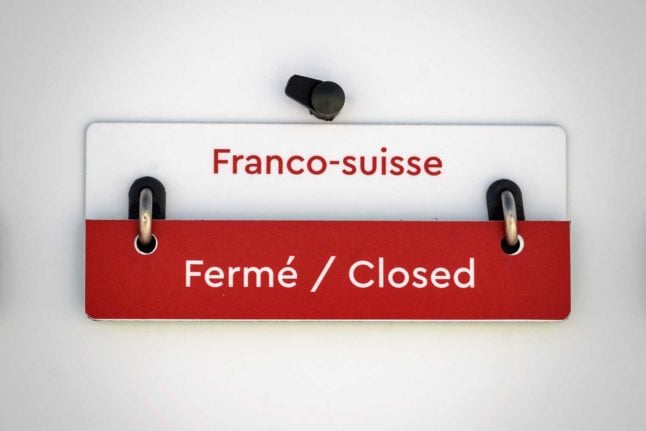Making a quick dash to France, Germany, Austria or Italy to do some essential shopping is common practice for many people living in Switzerland.
But before you fill up your bags with items that look cheap, it’s important to keep in mind the customs rules governing these purchases. Rules for items posted to Switzerland are different, and are not covered here.
300 Swiss franc duty-free limit
The overall value-added tax (VAT) or duty-free limit for bringing items into Switzerland is a net combined value of 300 Swiss francs (currently around €270).
READ ALSO: Why shopping in Germany could be about to get less attractive for Swiss shoppers
In other words, the total value of the products you have purchased minus the VAT imposed by France or Germany (or any other country) must not be more than 300 francs.
If you spend more than this in total – including on alcohol and cigarettes – you will have to pay Swiss VAT on the combined value of all those goods when you cross the border. You are legally required to declare these purchases. A good way to do this is with the QuickZoll app, which is the official app of the Swiss Federal Customs Administration.
Cigarette and alcohol limits
For alcohol purchases, the daily limit per person is five litres for drinks with an alcohol content of under 18 percent and one litre for drinks with an alcohol level above 18 percent.
For cigarettes, you can bring in 250 cigarettes per person per day. For other tobacco products, the daily limit per person is 250 grams.
Meat and dairy limits
You can only bring one kilogram of meat (including products like sausages) or fish per day into Switzerland before you have to pay VAT. Note, however, that it is illegal to import meat or meat products from outside the EU and Norway.
READ ALSO: So what is actually cheap in Switzerland
There is no VAT limit for meat not meant for human consumption, so pet food is fine.
For dairy, including butter and cream, the daily limit is one kilogram/one litre. There is also a five kilogram per day VAT-free limit for fats and oils and margarine for human consumption.
Other food, including milk, is duty free.
Minimum limits on VAT refunds
One of the appealing aspects of shopping over the border is the prospect of getting a VAT refund for items purchased in other countries. That means you can claim back of the total cost of items you have brought when leaving the country, making goods even cheaper.
For France and Austria, the general VAT rate is 20 percent, for Germany it is 19 percent, and in Italy the rate is 22 percent.
But you need to be aware that most of Switzerland’s neighbours have a minimum limit you need to spend before you can claim a VAT refund. For France, the lower limit is 175.01, for Italy it is €154.95 and for Austria, the minimum amount you have to spend before you can claim back VAT is €75.01.
READ ALSO: Three Swiss cities named Europe's priciest for foreign workers
Germany still has no lower limit, but this looks set to change after the German cabinet this week approved a draft measure that would see a €50 lower limit imposed for VAT returns. The measure still needs to be approved by the German parliament but is expected to come into force next year.
How to claim your VAT back
To claim back VAT, you will need to be able to prove that you are a permanent resident of Switzerland.
Keep in mind, too, that not all businesses offer the option of duty-free shopping. Look out for the Global Blue sign, commonly used to show that the retailer offers the service. If you are not sure, ask at the shop.
When you purchase an item, ask shop staff for an export certificate or a tax-free form. You will need to provide your name, address and an ID/passport number. Check the details on the form carefully and keep it together with the invoice. You then need to get the export certificate or tax form stamped when you leave the country where you bought the item.
If you are shopping in Germany, you can download a tax certificate here and take it with you.
In terms of reclaiming VAT, you can return to the shop where purchased the item with the stamped export certificate and get a refund or a discount on your next purchase.
If this option is not practical, you can use a service like Global Blue or Refund Suisse.



 Please whitelist us to continue reading.
Please whitelist us to continue reading.
Member comments